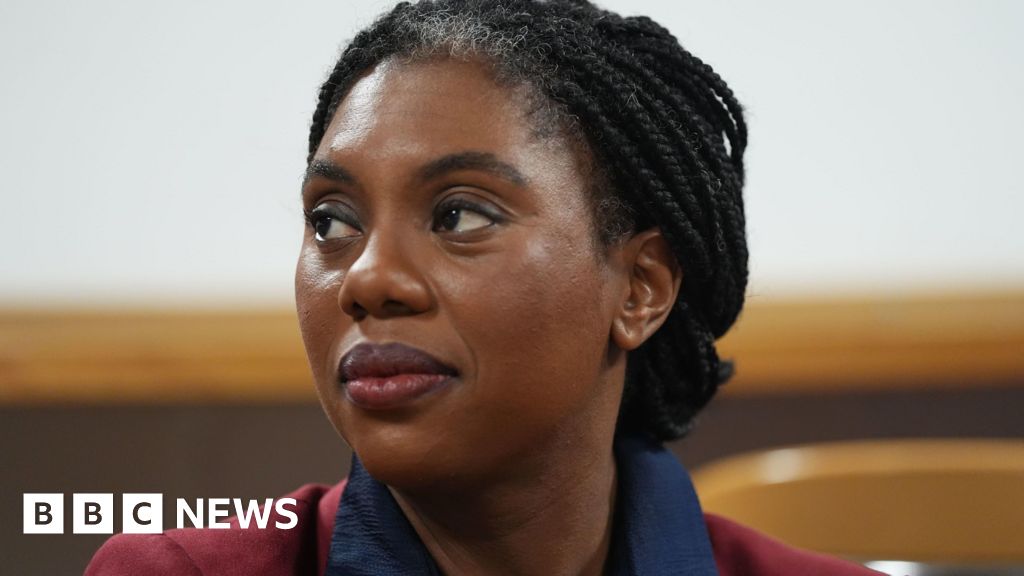ARTICLE AD BOX
Image source, Reuters
Image caption,Labour ended decades of Conservative rule by taking Wandsworth Borough Council in London
The Conservatives have lost control of key London councils in English local elections, but Labour have so far made fairly modest gains elsewhere.
The Lib Dems have made progress in Tory areas and took Hull City Council from Labour, in a good night for the party.
With just under half the results in, the Tories are on track to lose about 250 seats across England, according to polling expert Sir John Curtice.
The counts in Scotland, Wales and Northern Ireland get under way later.
The full results of those elections, as well those for mayoral contests, will come later on Friday and on Saturday.
Results overnight include:
- Labour won London borough Wandsworth from the Tories, who have held it since 1978
- The party has also won Barnet and Southampton from the Conservatives
- The Conservatives held majorities with reduced seats on councils, including those in northern England such as Redditch, Amber Valley, and Dudley
- Labour kept control of councils with lower majorities, including Wolverhampton, Salford and Coventry, where its vote has been historically strong
- In a referendum, voters choose to ditch the mayoral system and change the way Bristol City Council is run.
The Conservatives were braced for big losses in England, as they faced attacks over the rising cost of living and the ongoing Partygate scandal.
Labour's election coordinator Shabana Mahmood claimed the overnight results were a "turning point" for the party.
"After the disastrous results of 2019, these early results are showing the progress we have made thanks to Keir's leadership," she added.
But analysis of key wards by Sir John Curtice suggests Labour's support is down by 0.2% since the 2018, when the party recorded its best local election performance under previous leader Jeremy Corbyn.
Tory losses are not as bad as some in the party had been warning about, but some who did lose were quick to point the finger of blame at Boris Johnson.
'National issues'
One local Tory leader said Partygate had "suppressed our turnout" in Sunderland, where Labour retained the city council with one fewer seat.
"The best chance of reviving the Conservative Party's fortunes will be with a new leader," Antony Mullen, the leader of the Conservatives on Sunderland Council, told the BBC.
The Liberal Democrats pulled off the first decisive victory of the night, taking control of Hull City Council from Labour. The council had been controlled by Labour since 2011, when it took over from the Liberal Democrats.
The Liberal Democrats won overall control of Hull City Council from Labour
The second eye-catching result came in south London, where Labour took control of Wandsworth Borough Council.
Famous for its low council tax, Wandsworth has been under Conservative control since 1978, a year before Margaret Thatcher became prime minister.
Ravi Govindia, leader of the Wandsworth Tories, said: "Let's not be coy about it, of course national issues were part of the dilemma people were facing."
Image source, Getty Images
Image caption,Sunderland Tory leader Antony Mullen (L) said Partygate had "suppressed our turnout" in the city
In Worcester, the Conservatives lost overall control of the council, as Labour, the Greens and the Lib Dems gained a seat each.
Last year the Conservatives eked out a majority of one in Worcester, which narrowly voted to leave the EU in the 2016 Brexit referendum.
Elsewhere, Labour picked up control of the new Cumberland authority with a majority of 12.
What to expect on Friday?
The focus will shift from results in England to those in Wales, Scotland and Northern Ireland as well.
All of Scotland's 32 local authorities are up for election, as are all of Wales's 22.
In Northern Ireland, the vote will elect 90 members of the assembly, which will attempt to uphold the mandatory power-sharing agreement between unionists and nationalists. The result could herald a historic political shift if Sinn Féin - a nationalist party - becomes the largest party for the first time in Northern Ireland's history.
All results in England, Scotland and Wales should be known by Friday evening, and by Saturday in Northern Ireland.

 2 years ago
53
2 years ago
53








 English (US) ·
English (US) ·